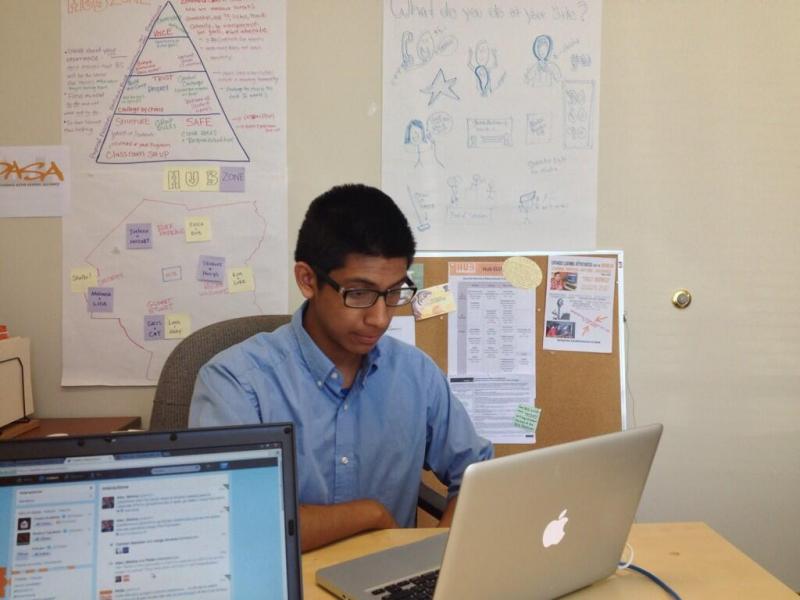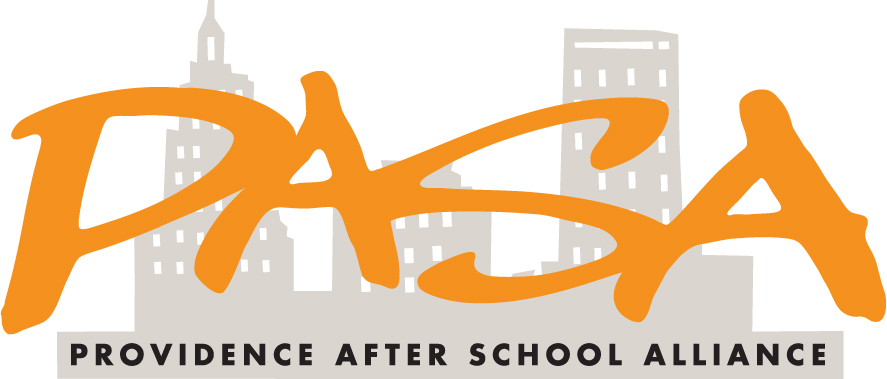
By Michael Braithwaite, Manager of Communications and Development
Posted on 2.14.2014

The Hub’s Program Completion Digital Badges
In the two years since PASA first began developing its digital badges ecosystem for the Hub’s credit-bearing ELOs (expanded learning opportunities), the conversation around using badges to “capture, promote, and communicate” learning at all ages has exploded, both nationally and internationally. In particular, their potential to connect out-of-school learning with in-school learning and job readiness has been touted by the tech industry, higher education, and afterschool and expanded learning organizations alike.
There has been much debate, however, about how to ensure that badges don’t get relegated to the realm of the “digital trohpy.” To truly act as fulcrums between out-of-school and/or informal learning and more formalized institutions and systems, they must be tied to high quality experiences with long-term impact.
At PASA, this has meant that instead of developing badges as a parallel initiative, we’ve integrated them into our existing mission of cross-sector collaboration and consistently high quality programming. Our badges—orginally piloted as high school program participation badges—are inherently tied to our ongoing program quality work, student outcomes, and workforce skills.
Other organizations who have successfully incorporated digital badges have similarly found that by tying them to their missions, badges can be an effective way to capture and display learning that wouldn’t traditionally be included in a transcript or resume.
MOUSE, a youth development organization that focuses on school-based, student-led technical support and leadership in New York City, found that digital badges were a great way to promote cumulative skill aquisition in their programs. Education Director Marc Lesser told EdWeek that they “needed to start helping young people see a trajectory for themselves [in the program]. There’s far more impact when young people stay with us for longer periods of time. Badges may help learners see steppingstones that don’t lay out in a linear way.”

Hub Alum Bryan Norato Chats with the White House About the Potential of Digital Badges
As PASA begins to move forward with phase two of the badging initiative, we’ve begun to tie badges to our “graduate profile,” which focuses on ensuring that our AfterZone and Hub participants graduate high school with the 21st Century skills they need to succeed at whatever they choose to do. Beginning in the fall of 2014, Hub ELO badges will be earned for skills like critical thinking, communication, or perserverance.
For students to fully adopt badges as a strategy, however, badges will not only need to connect to experiencesand credit accumulation, but to other tangible benefits—such as internship and job opportunities—as well as be taken into account by a wider variety of college admissions officers. Last year, the Clinton Global Initiative embraced badges as a tactical “way to enable institutions to recognize their accomplishments…a more modern and comprehensive credentialing system.” Currently, badges seem to have a bright future, but ensuring their success will require collaboration on the part of the afterschool and expanded learning community, schools and districts, higher ed., and potential employers.
